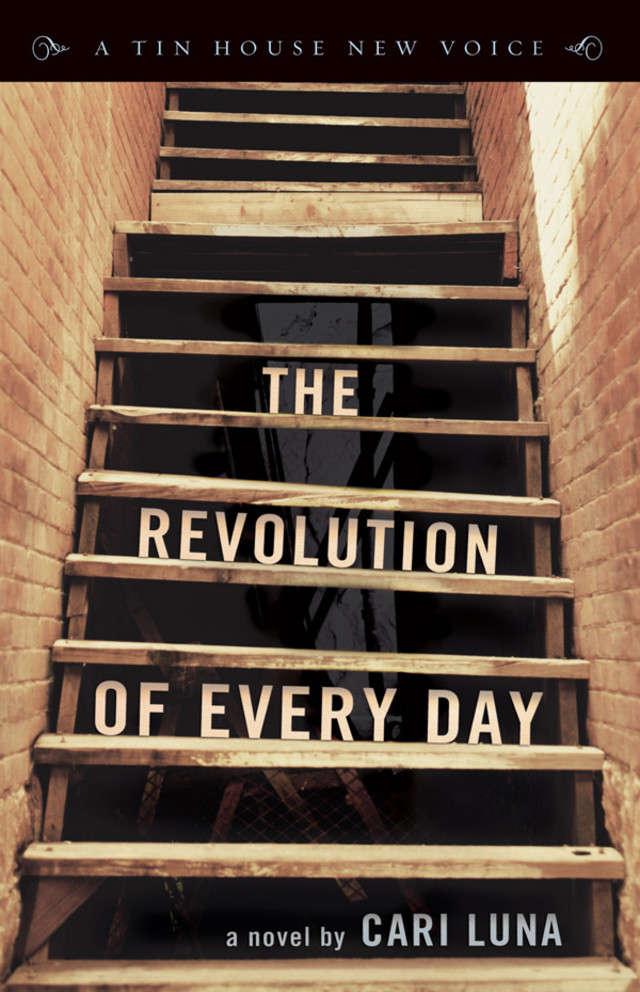Book Review: Cari Luna's 'The Revolution of Every Day'

Image: Courtesy Tin House
It’s the mid-1990s in New York City. A group of squatters has turned abandoned Lower East Side tenements into their homes, constructing their own underground society. This is the world of The Revolution of Every Day, the gritty debut novel from recent New York transplant Cari Luna.
Amelia, once a runaway teenage junkie, has settled into the “homestead” with her rescuer, Gerrit, but is pregnant by his best friend, Steve. Steve is busy trying to save his marriage with Anne. Cat, the queen of the street scene in the ’70s, tries to square herself to the reality that she might be too old to start anew. The shattered souls scrounge for meaning among the scraps of lumber they collect to rebuild their makeshift home—blind to their approaching judgment day: May 30, 1995, when Mayor Rudolph Giuliani sent hundreds of riot cops to evict the squatters.
Luna’s love for New York truly elevates the novel. “You’ve turned on us, New York,” she writes in the lyrical epilogue. “We who see your jagged-tooth skyline rise up and want to weep because we are so full of you. We mourn for you, New York, because you are forgetting us, your brash and ragged children.”
Luna’s story asks a fundamental question that all Portlanders might ponder: What if being homeless wasn’t homelessness?




